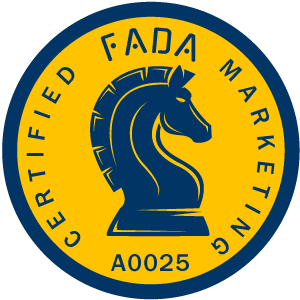Which Internet Marketing Channel is Right for You?
What digital marketing channels can elevate your small business without draining your budget? This guide is crafted to demystify small business digital marketing, delivering straightforward insights on cost-effective strategies to enhance your online visibility and engage your audience—giving you the confidence to select the right channels and tactics that align with your business goals.
Key Takeaways
- Choosing the right internet marketing channel depends on understanding the target audience and aligning with the business goals, timeline, and budget, with the objective to build brand awareness, customer engagement, and overall success.
- Each internet marketing channel caters to different needs: Instagram is crucial for visually-rich content engagement, Google Ads for enhancing search engine presence, and email marketing for customer loyalty and repeat business.
- Success in internet marketing lies not in the presence on all channels but in being visible where the audience is most active, engaging them meaningfully, and creating content that resonates with them and reflects the brand’s identity and values.
Imagine standing at a crossroads, each path leading to a different destination. Just like these paths, each internet marketing channel leads your small business to different types of internet users. Choosing the right channel can significantly impact your online presence, customer engagement, and overall success.
The key to making the right choice lies in understanding your target audience and aligning it with your business objectives, timeline, and budget. For example, if your goal is to build immediate brand awareness, channels like PPC, display advertising, and social media advertising can be effective.
Moreover, digital marketing channels not only help in reaching out to potential customers but also in engaging existing ones. They facilitate the development of brand loyalty, encourage repeat business, and offer valuable feedback, thus making a significant contribution to customer engagement.

1. Instagram for Small Businesses
Venture into the dynamic world of one of the most popular social media platforms - Instagram. With its visually rich content and vast user base, Instagram has emerged as a crucial social media platform and one of the most important online marketing channels for small businesses.
Consider the narrative of Rove Boutique, a local business that ventured into the sphere of social media marketing. Like many small businesses, Rove Boutique knew that to engage potential customers, they needed to create compelling digital marketing campaigns on popular digital platforms.
They began by:
- organizing merchandise by color for photos
- creating unique and visually appealing social media posts that caught the attention of Instagram users
- incorporating time-lapse video marketing content of restocking shelves, which provided an engaging behind-the-scenes look at their business.
Instagram’s features like Stories and relevant hashtags were leveraged to enhance their social media advertising. They also encouraged User Generated Content (UGC), which allowed their customers to become a part of their digital marketing strategies.
Yet, their efforts didn’t end there. Understanding the power of influencer marketing, Rove Boutique collaborated with Step Out Buffalo, a move that significantly expanded their social media followers, and in turn, their customer base.
The experience of Rove Boutique illustrates the potential of Instagram as a social media channel to amplify brand awareness, engagement, and sales. Their story is a testament to the power of using the right digital marketing channels and strategies to reach and engage potential customers.

2. Google Ads for Small Businesses
Shifting focus from social media, let’s explore the vast landscape of search engines, particularly Google Ads. A popular tool in the world of search engine marketing, Google Ads has proven to be a game-changer for small businesses looking to optimize their online presence through search engine optimization.
Ponder upon the account of a consulting firm that embraced the use of Google Ads. They understood that the search engine results pages (SERPs) were a battleground, and to win, they needed to occupy the top spots. Enter PPC advertising – a strategy that allowed them to display their services to individuals who used Google for relevant searches.
The firm strategized their digital marketing campaigns, setting specific campaign goals focused on generating inquiries and leads. They understood the importance of appearing in advertised links on the search engine, and they knew that the ranking of their ads would be influenced by the Cost Per Click (CPC) and quality score.
However, their efforts transcended beyond just creating PPC ads. They also invested time and efforts in optimizing their website’s landing page, a crucial step for providing a seamless user experience for individuals clicking on the ads.
Their strategy paid off. By consistently optimizing the campaign, they were able to maximize their return on investment, resulting in increased website traffic and client inquiries.
The triumph of this consulting firm underscores the potential of Google Ads as an internet marketing channel, demonstrating how a small business can significantly boost its online visibility and website traffic by using the appropriate digital marketing channels.
3. Email Marketing for Small Businesses
Transitioning from the sphere of search engines, let’s delve into the domain of email marketing. Despite the rise of various digital marketing channels, email marketing remains a powerful tool for small businesses to engage their target market and build a loyal customer base.
Visualize a coffee shop that incorporated email marketing into its digital marketing strategies. They understood that to build loyalty amongst their customers, they needed more than just excellent coffee - they needed to create a space where their customers felt valued and engaged.
They started by building and segmenting an email list, recognizing the importance of delivering targeted and engaging
campaigns. They also understood the power of compelling subject lines and adhered to a regular sending schedule. This allowed them to establish a consistent brand voice and build relationships with their customers.
Their initiative, however, didn’t end there. They also prioritized creating high-quality content and leveraging email automation. This not only saved them time but also ensured that their customers received personalized and timely emails.
Their email marketing efforts paid off. By consistently reaching out to their customers, they were able to solidify a loyal customer base and drive repeat business.
Their journey exemplifies the efficacy of email marketing as a potent digital marketing channel. It demonstrates how a small business can foster customer loyalty, drive repeat business, and generate sales through intelligent and targeted email marketing efforts.
Having navigated through the terrains of Instagram, Google Ads, and email marketing, it’s clear that the digital sphere provides a plethora of internet marketing channels for small businesses. The key, however, is to choose the right digital marketing channels that align with your business goals and resonate with your target audience.
Selecting the right channels is like finding the right voice for your brand. Just as a singer’s voice can touch the hearts of their audience, your choice of digital marketing channels can reach and engage your target audience, fostering a connection that goes beyond mere transactions.
This connection is not just about driving traffic or generating sales. It’s about building relationships. It’s about creating a sales funnel where your audience doesn’t just visit your website but becomes a part of your business journey.
Whether it’s through visually engaging social media posts, targeted PPC ads, or personalized emails, your digital marketing efforts should reflect your brand’s identity and cater to your audience’s needs and preferences.
Ultimately, it’s not about marking your presence on every digital marketing channel but being visible where your audience resides.
It’s about creating content that resonates with them, engaging them in meaningful ways through content marketing, and ultimately, building a digital presence that mirrors your brand’s values and vision.
So, as you navigate the digital world and explore various marketing channels, remember to align your marketing strategy with your business goals. And more importantly, never forget that at the heart of every marketing effort is your audience – the people you want to reach, engage, and transform into loyal customers.
Summary
As we reach the end of our journey, let’s take a moment to recap the key points of our exploration. We began with the importance of selecting the right internet marketing channel, emphasizing how it can significantly impact your online presence, customer engagement, and overall business success.
We then delved into case studies of businesses that successfully leveraged Instagram, Google Ads, and email marketing. Each of these businesses chose their marketing channels based on their business objectives and target audience, and by doing so, they were able to increase brand awareness, drive traffic, and build a loyal customer base.
The journey underscored the importance of aligning marketing efforts with business goals and understanding your target audience. It showcased how the right digital marketing channels could be a game-changer for small businesses.
So, as you embark on your digital marketing journey, remember that the power to succeed lies in your hands. Choose the right channels, create compelling content, and engage your audience. The digital world is your oyster – explore, experiment, and excel.











